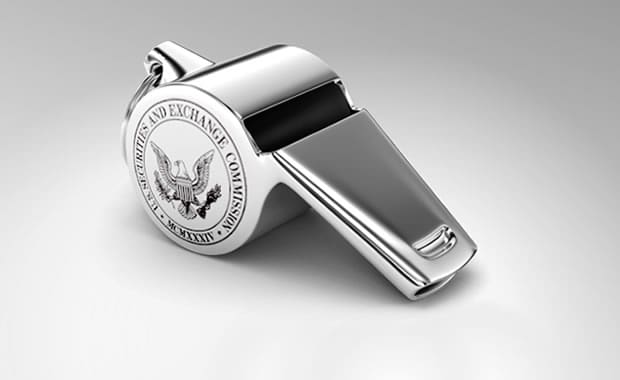The U.S. Securities Exchange Commission (SEC) is one of the driving forces in the global whistleblower industry. And a huge industry it became. In FY 2022, the SE awarded approximately $229 million in 103 awards. Since the beginning of the program, the SEC has paid more than $1.3 billion in 328 awards to individuals. Whistleblower-based SEC enforcement actions have resulted in more than $6.3 billion in total monetary sanctions.
A Booming Industry
In FY 2022, the SEC received over 12,300 whistleblower tips; the largest number received in a fiscal year since its inception. In October 2021, the U.S. CFTC announced that it paid nearly $200 million to a whistleblower. The largest award the CFTC has ever made, but also the largest award made under any whistleblower-reward program in the U.S. The success of U.S. whistleblower programs has driven governments and regulators around the world to implement programs.
Whistleblowing has become a huge business for attorneys who serve whistleblowers and receive shares of the awards paid out. Most recently, bestselling author John Grisham dedicated the New York Times bestseller The Whistler to this topic.
In November 2019, the EU Whistleblower Directive came into force. The Directive requires EU Member States to implement rights and obligations concerning whistleblowers, private organizations, and the Member States themselves in national law.
An Ethical Weapon
Whistleblowers expose illegal or unethical activities within organizations or government agencies. They play a critical role in uncovering wrongdoing and promoting societal accountability, transparency, and integrity. Here are some of the ways whistleblowers add value to society:
- Exposing corruption: Whistleblowers can bring to light corruption, fraud, waste, and abuse of power that would otherwise go unnoticed. Speaking out against these practices help prevent public resources from being misused and ensure that individuals and organizations are held accountable for their actions.
- Promoting transparency: Whistleblowers can help shine a light on opaque or secretive processes, such as those in government agencies or private corporations. By disclosing information that is in the public interest, they can help promote transparency and accountability in decision-making processes.
- Protecting public safety: Whistleblowers can also play a crucial role in protecting public safety. For example, a whistleblower in the pharmaceutical industry could reveal the dangers of a drug that has not undergone adequate testing, potentially saving lives.
- Encouraging ethical behavior: Whistleblowers can encourage ethical behavior by holding individuals and organizations accountable for their actions. When organizations know there is a risk of exposure, they are more likely to behave ethically and avoid engaging in illegal or unethical practices.
Overall, whistleblowers are essential to promoting a just and fair society. Their actions can help prevent harm, protect public resources, and promote transparency and accountability. Therefore, providing them with legal protection, support, and recognition for their contributions to society is essential.
